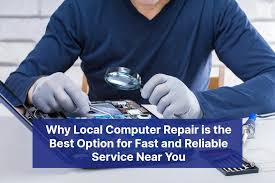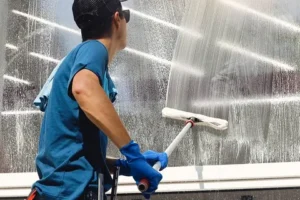Top 10 Everyday Items You Didn’t Know You Could Recycle
We all know the basics of recycling: paper, plastic bottles, and glass jars. But did you know that there’s a whole world of overlooked everyday items that can be recycled too? Recycling isn’t just about sorting bottles and cans—it’s also about giving new life to those everyday objects that usually end up in the trash. Let’s explore the top 10 surprising items you didn’t know you could recycle—and why it matters for sustainability and compliance with EPR Registration online.
1. Toothbrushes and Toothpaste Tubes
Dental care products like toothbrushes and toothpaste tubes are often tossed in the trash after they’re used up. But many brands and recycling programs now accept them. These items are made from mixed plastics that can be processed and reused in creating other consumer goods, reducing the demand for new plastic.
2. Old CDs and DVDs
Remember your collection of CDs and DVDs? Don’t just let them gather dust—recycle them! These discs are made from valuable plastics like polycarbonate, which can be recycled into new products, including automotive parts or new optical media. Many local e-waste centers accept them.
3. Crayons
Crayons may be small, but they add up in landfills. Fortunately, there are programs that melt down used crayons to create new ones, giving them a second life in schools, art classes, and community programs. It’s a great way to encourage kids to care about sustainability too!
4. Prescription Eyeglasses
Don’t let your old eyeglasses go to waste. Many opticians and charities collect used glasses, which are refurbished and provided to people in need around the world. By recycling your glasses, you’re not just helping the planet—you’re helping others see clearly.
5. Wine Corks
Natural cork is a renewable resource, and wine corks can be recycled into flooring, shoes, and even sports equipment. Many wine stores and recycling centers collect corks to keep them out of landfills. Next time you pop a bottle, think about giving that cork a second life!
6. Running Shoes
Your old sneakers have a lot of life left in them—even after you’ve stopped using them. Major sports brands and nonprofits have programs that turn worn-out athletic shoes into materials for playgrounds, sports courts, and even new shoes.
7. Brita Water Filters
Water filters play a key role in our daily lives, but they don’t need to end up as landfill waste. Brita, for example, runs a recycling program that takes back used filters and repurposes the materials for new products. It’s an easy way to keep harmful plastic waste out of the environment.
8. Chip Bags and Snack Wrappers
These items are tough to recycle because they’re made from layers of different materials. But specialized recycling programs like TerraCycle can handle them. They collect these wrappers and turn them into durable materials like park benches, outdoor furniture, and tote bags.
9. Mattresses
Mattresses are bulky and take up a lot of landfill space. But they’re also full of recyclable materials—like metal springs, foam, and fabric—that can be reused. Many cities now have dedicated mattress recycling centers, making it easier than ever to keep these items out of the dump.
10. Pens and Markers
Dead pens and markers often go straight into the trash, but they’re full of plastics and metals that can be recycled. Specialized recycling programs can take them apart and turn them into new writing instruments or plastic goods.
Why It Matters: Supporting Sustainability and EPR Registration Online
Recycling these lesser-known items isn’t just about reducing waste—it’s part of a broader effort to build a circular economy. Many countries, including India, are implementing Extended Producer Responsibility (EPR) programs. Under EPR, producers are responsible for the waste generated by their products, from collection to recycling.
EPR Registration online ensures that companies comply with these rules, taking responsibility for their environmental impact. When you recycle these everyday items, you’re contributing to that system and supporting a cleaner, more sustainable world.
Small Steps, Big Impact
You might wonder if recycling something as small as a toothbrush or an old marker really makes a difference. The truth is, every small action adds up. By recycling creatively and participating in local and national recycling initiatives, you’re helping reduce the amount of waste that ends up in landfills and oceans.
So next time you’re about to throw something away, pause and think: can this be recycled? From your morning coffee to your kids’ art supplies, there’s a good chance it can have a second life. And if you’re a business owner or manufacturer, make sure you stay compliant with EPR Registration online to do your part for the planet.
Conclusion
Recycling doesn’t have to be limited to the basics. From toothbrushes and chip bags to old sneakers and eyeglasses, there’s a whole world of items you didn’t know you could recycle. By making these small, conscious choices and staying updated on EPR Registration online, you’re helping create a healthier planet—and inspiring others to do the same. Let’s keep the momentum going and make recycling a part of our daily lives!’
Also Read: ISP License: Why It’s Essential for Your Internet Service Business











